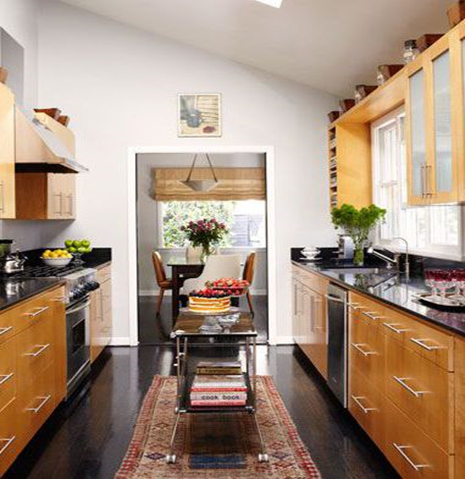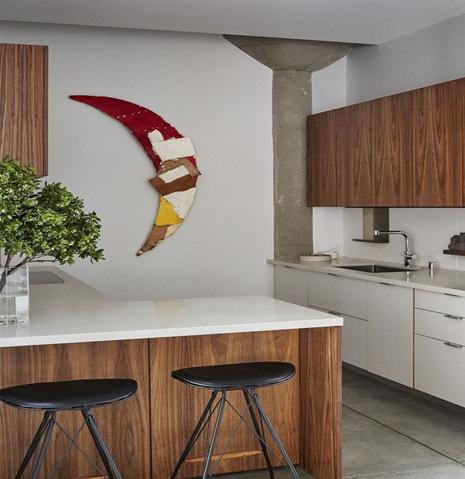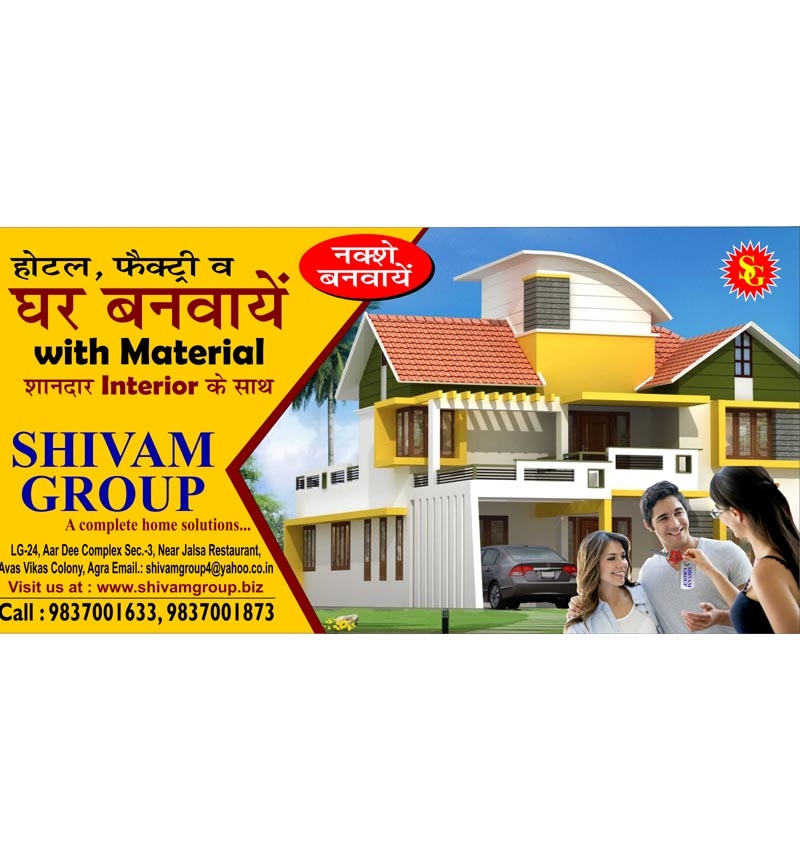If you've decided on stone countertops in favor of butcher block, marble, tile, stainless, or concrete versions, you've probably found yourself researching two primary options: granite and quartz. Understanding the seemingly minor differences between the surprisingly different materials can help you select a countertop that fits your design goals and budget.
WHAT ARE GRANITE AND QUARTZ?
So here's the first kind of exciting fact about granite: It's actually comprised of quartz, or at least partially. From a geological perspective, granite is igneous rock—that is, a rock that was originally formed when lava or magma cooled—and while its composition can vary widely, most versions have two primary minerals: quartz (20 to 60 percent) and feldspar (about 35 percent). Other granite minerals include mica and amphibole; it's the varying concentrations of these four primary elements that create the stone's signature graininess.
While Brazil and Italy are responsible for most of the world's granite, the rock is also indigenous to the United States. Georgia, Indiana, Massachusetts, Texas, and Wisconsin, are the top producers of granite but there are also quarries in North Carolina and Vermont.

Quartz is a naturally occurring mineral—not a rock—made of oxygen and silicone. But quartz countertops aren't just big slabs of mineral. They're actually manmade composites of about 90 percent quartz. The rest? A proprietary blend of binders like resins and polymers, plus pigment which allows the product to resemble the coloration of natural quartz. Also worth noting: Quartz is often referred to by the brandname of a big manufacturer, Caesarstone.
DURABILITY
Because granite is a naturally occurring rock, there are trace cracks and fissures in each piece; it's also a porous material, meaning breaks, fractures, and stains are possible, although fairly unlikely. By nature, granite is relatively solid and non-staining. It's one of the strongest materials in the world. That's why it's used so frequently in building, after all.
Quartz is completely sealed, and does not have pores or cracks, making it an impressively solid artificial rock.

Ultimately, granite and quartz both stand up well to etching, abrasions, and heat; neither is affected by acid, like marble. Both are, however, vulnerable to chips or breaks if subjected to blunt force in unsupported areas—like, say, by dropping a cast iron skillet right on the corner of your counter—and both can stain. But it's staining where the two materials show their differences in durability most; because quartz is completely non-porous, it's more stain-resistant.
APPEARANCE
Granite comes in a wide range of colorations—from deep, nearly-ruby reds to jade-like greens, neutral grays, and cool peach tones. Again, because granite is natural, there's more variation inch to inch. If you're someone who delights in the unique, selecting the perfect piece of granite from the stone yard can be a true pleasure. Do keep in mind though, if you scope your perfect piece and it doesn't fit your project's needs, granite variation can be a source of some frustration.
Alternately, quartz is completely uniform, which means that when it's time for your countertops to be installed, you can calculate where the seams will fall. And quartz can be manufactured in an almost endless array of colors, grains, and veins. There are quartzes that resemble granite and Carrara marble. You have flexibility when it comes to the look of quartz.
PRICE
As with most building materials, pricing depends on your location and the scope of your project. But according to most sources, quartz and granite cost about the same; starting around $80 per square foot, installed.
SAFETY CONCERNS
Like all rocks, granite does emit radiation in the form of trace amounts of radon gas. While most studies suggest that no radon emitted from a granite countertop would ever result in actionable levels, if you are concerned, the EPA does offer this guide about granite and radon.



















Your Message